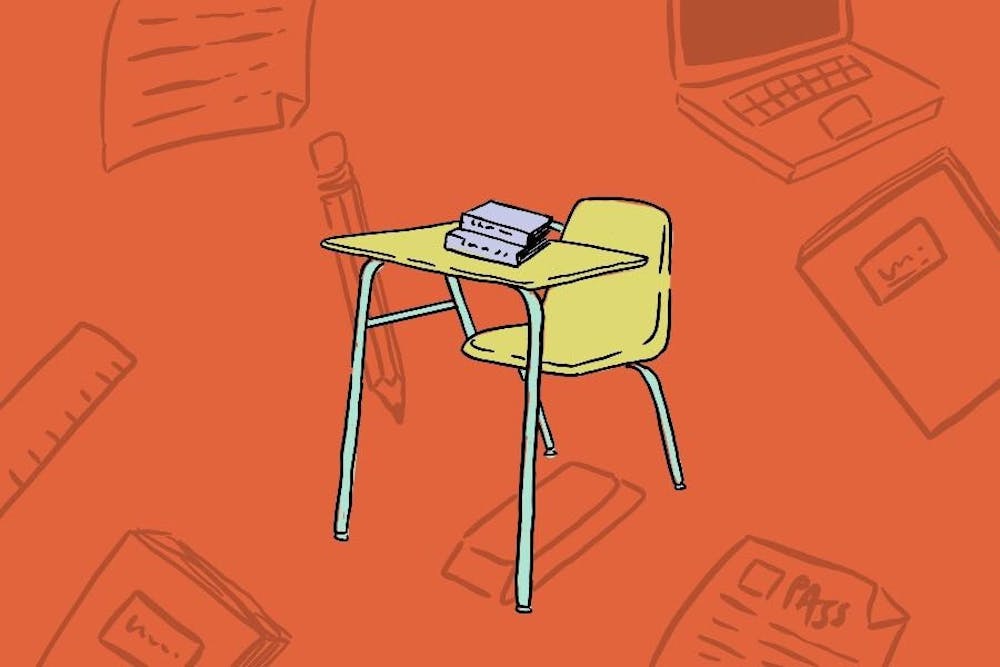The week before fall break saw the drop period come to a close, although the option to change a graded class to pass/fail will be open until the ninth week of the semester. One thing that was surely on the minds of students debating whether to stay in their classes was the need to fulfill general education requirements in order to graduate.
Penn currently requires that all College students take classes for a grade to fulfill the seven sector requirements. These requirements are a critical part of the University’s efforts to promote interdisciplinary learning and a liberal arts education. But the system as designed prevents students from fully engaging in their intellectual curiosity and favors those who choose to take notoriously easy classes instead. Penn should allow students to take courses pass/fail in order to fulfill the sector requirements to encourage risk-taking and exploration.
Many sector-fulfilling courses will fall outside a student’s chosen area of focus, and might be particularly challenging for this reason. The stated purpose of the University’s pass/fail option is “to permit [students] to elect courses from unfamiliar disciplines.” This is a perfect fit for sector requirements — when exploring new disciplines, especially those outside of a student's comfort zone, it is a waste of the valuable opportunity for learning provided by Penn that so many students take easy, safe classes in order to protect their GPA, and, by extension, scholarships, job opportunities, and graduate school prospects.
These easy, safe classes are common across most universities, and many Penn students will learn which classes they are from upperclassmen nearly as soon as they arrive on campus. This leads to certain classes with this reputation becoming filled with students who are not invested in learning, but simply looking to graduate without ruining their GPA. If students could choose classes that actually interested them, rather than just those with a reputation of easy grading, then the educational environment would be radically different. Rather than hurting the students who actually want to be in the class, by forcing them to learn alongside unengaged, uninterested classmates, and the students who are missing out on a chance to learn something that interests them, Penn could foster a healthier learning environment for everyone.
Some may be concerned that allowing students to fulfill sectors with pass/fail courses could lead to diminished motivation for students or decreased rigor in Penn’s liberal arts education. This fear is misplaced — it’s far better to create a system in which students will have intrinsic motivation to learn for the sake of education, rather than because they want to get a good grade. Those concerned about rigor should consider the fact that if Penn can foster a learning community that promotes learning for its own sake, that will ensure students hold themselves to a high standard, and remove the need for external rigor that can be avoided by taking easy classes and putting in a minimum level of effort.
Ultimately, allowing students to fulfill sector requirements with courses taken pass/fail would not only encourage an atmosphere of intellectual curiosity, it would make Penn a university that places value on learning and exploration. The ability to take academic risks will enrich Penn students’ education, and Penn can achieve this goal simply by allowing students to take difficult classes to fulfill sector requirements without risking a harmful grade.
Editorials represent the majority view of members of The Daily Pennsylvanian, Inc. Editorial Board, which meets regularly to discuss issues relevant to Penn's campus. Participants in these meetings are not involved in the reporting of articles on related topics.
SEE MORE FROM THE DAILY PENNSYLVANIAN EDITORIAL BOARD:
Penn's squash court fees are elitist, hurting students and the sport itself
SEE MORE FROM THE DAILY PENNSYLVANIAN EDITORIAL BOARD:
Penn's squash court fees are elitist, hurting students and the sport itself









